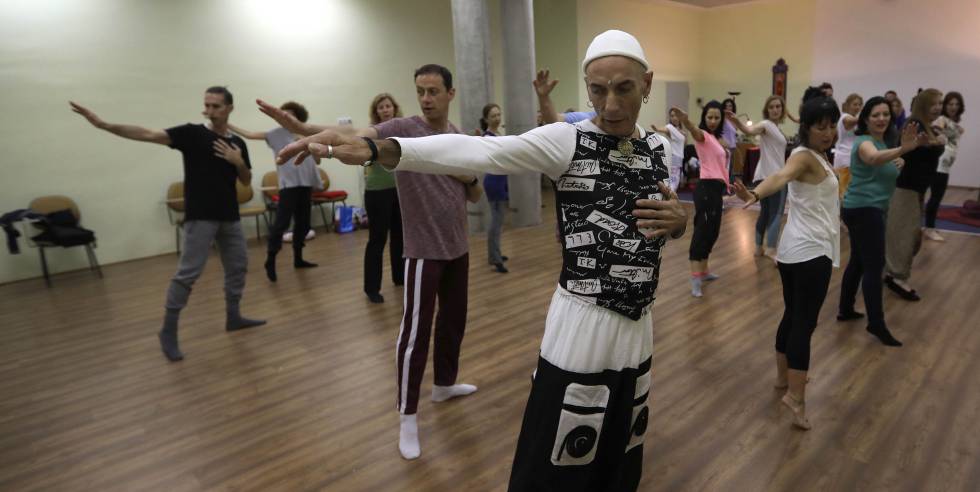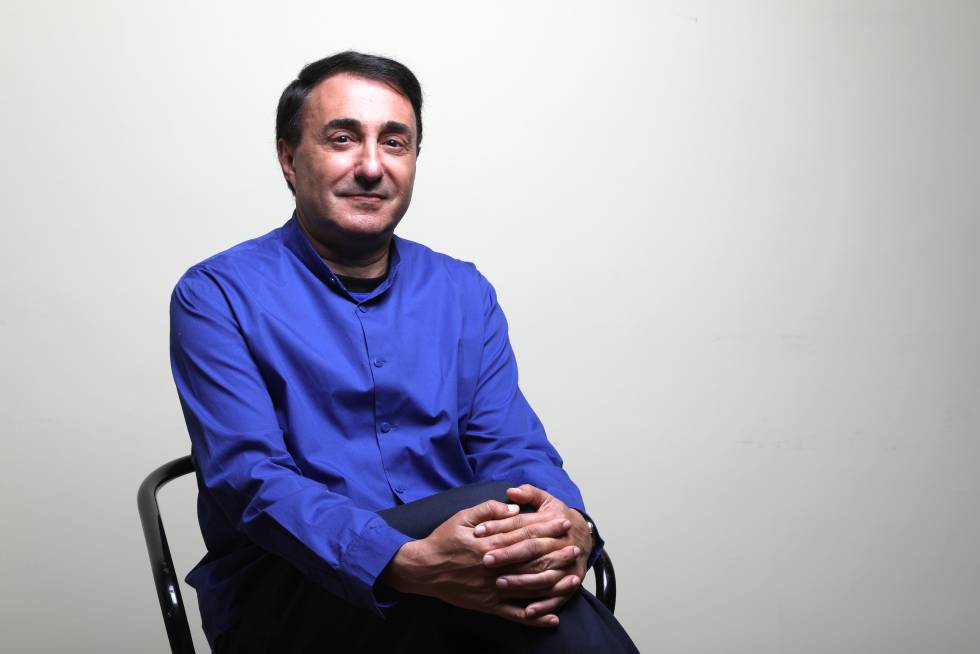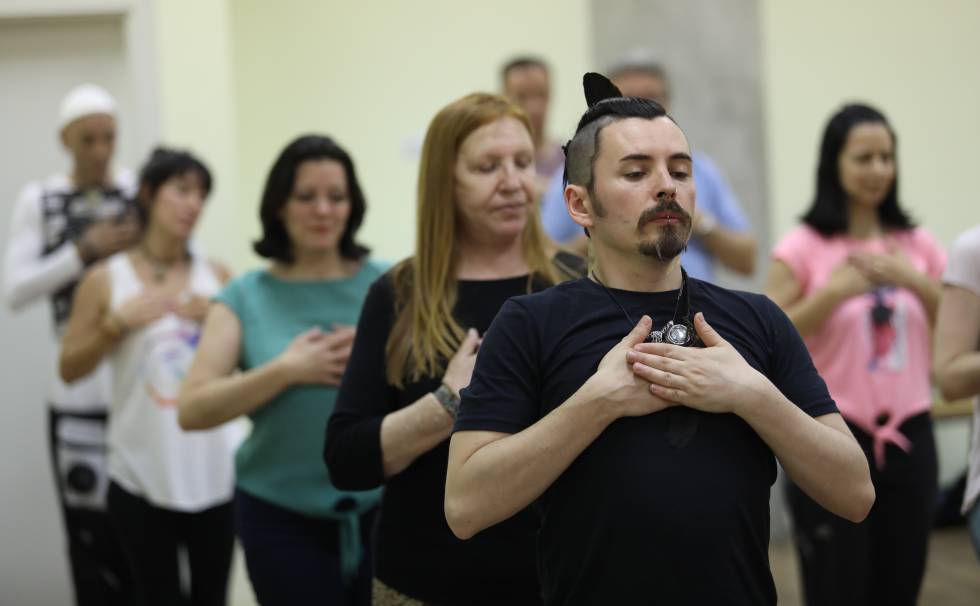
The disciples of the late Indian guru Osho are far from wild, particularly those in Spain. There are no assault rifles in their ashrams or poisonous potions for their rivals, nor do they plan to take over whatever cities they may live in.
In fact, their lives are far more ordinary than those depicted in the Netflixdocumentary series Wild Wild Country, a retrospective of the Osho community’s rollercoaster years in Oregon when it became embroiled in criminal activities and its leader was ultimately run out of the country.
The Osho Foundation now has its headquarters in Zurich, from where it peddles Osho products and promotes the Osho Meditation Resort in Poona, India, where the movement was first established in 1974 by the Indian mystic Bhagwan Shree Rajneesh.
Osho International recommends 16 centers in Spain to anyone interested in pursuing his teachings. Most are run by sannyasins – disciples who have been renamed in an initiation ceremony. “I had a friend who was a sannyasin and changed her name three times,” says José Antonio Espeso, head of the Masunaga school in Coslada, Madrid, which offers shiatsu. “In the end, you didn’t know what her name was anymore. These rituals are somewhat infantile.”
Born in India in 1931, Bhagwan Shree Rajneesh was a student of philosophy who shocked Indian society with his liberal ideas on sex and religion and who changed the spiritual landscape for foreign hippies who had been drawing their inspiration from that part of the world since the 1960s.

Decked in expensive robes and jewelry, he had a fleet of 90 Rolls Royce and owned more than a few private planes. His meditations were renowned for their dynamism and his lectures were direct and easily grasped.
At the height of his fame, Osho and his sidekick Ma Anand Sheela snapped up a 26,000-hectare ranch in Wasco County, Oregon, US, and set about constructing an Osho city called Rajnishpuram, which included an airport and armed security forces. Thousands of Osho disciples flocked to the commune to experience the idealistic Osho lifestyle, but instead found themselves mired in conflict with the US authorities on account of assassination plots, illegal immigration networks, wire tapping and attempts to rig local elections.
Osho blamed a mass food poisoning attack and plots to kill public officials on Sheela and her inner circle at the ranch. But his bid to sidestep prosecution was not wholly successful. In 1985 he was given a 10-year suspended sentence, agreeing to leave the US and not to return for five years without the permission of the US Attorney General. The commune was dismantled and his disciples followed him back to Poona where he died in 1990 of heart failure.
Sannyasin Luis Martín-Santos – aka Charna – recalled last May on the radio station Cadena Ser how he used to see Osho pilgrims walking down Las Ramblas in Barcelona at the start of the 1980s, wearing the hallmark crimson tunics. He himself belonged to the Oregon commune between 1983 and 1985 and now acts as a literary agent, managing Osho’s publishing rights in Spain. More than 190 of the guru’s books have been translated into Spanish. Martín-Santos says he’s “overjoyed” with the publicity Wild Wild Country is offering the Osho brand but is dismayed by the protagonism given to Sheela. “It just shows that the press and the public idealize figures who are proven to have committed crimes or who personify a certain disorder.”
Martín-Santos says there are probably thousands of sannyasins in Spain but says that only a few dozen Spaniards were involved in the beginnings of the Osho movement in India and that around 100 would have visited the commune in Oregon.
The sannyasins’ response to Wild Wild Country can be found on their social networks and in the foundation’s digital newspaper, The Osho Times: their leader did nothing wrong. He was, they say, a victim of Sheela’s machinations and a conspiracy by the US government, which saw the cult as a threat to its conservative values.

Ana María Ramírez, a dentist in Tarragona, is one of Spain’s sannyasins. Her brother bought a camper van in the mid-seventies and traveled overland to India with his girlfriend. While in India, he came across Bhagwan Rajneesh and returned from Poona a changed man. Ana María, then just 16, fell under his influence and is now the head of an Osho information center. She believes that Wild Wild Country has been of more interest to journalists than to the population at large. Ramírez adds that while the documentary helps us to understand the corrupting effect of power on Sheela, it fails to enlighten us about Osho himself.
The Osho information center in Barclona is run by María Crespo, whose sannyasin name is Chiyono. Crespo is a New Age therapist, working with family constellations and a diet, exercise and massage-based approach to medicine known as naturopathy. Not long after her 20th birthday she became a sannyasin, influenced by a group of friends who had made the pilgrimage to Poona and Oregon. According to Crespo, the documentary has little relevance anymore, given the proliferation of similar movements.
Crespo admits that Osho was a controversial figure but insists that the free love angle has been exaggerated. As far as Sheela’s conference in May in Barcelona’s Contemporary Cultural Center (CCCB) is concerned, she didn’t attend as she prefers to remain aloof from the goings-on in Oregon.
Francis Sendín, another sannyasin, runs an organic food store in Palma de Mallorca. He is convinced that the documentary is one of Sheela’s strategies to clean up her image, hence the CCCB conference. “She’s unlikely to be doing it for money,” he says. “They claim she took $70 million.”
source:-elpais
